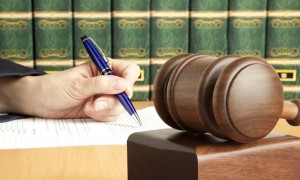
If you’ve been arrested, odds are a police or liaison officer will notify you of your arraignment date. If you’ve never been arrested, the term arraignment probably sounds foreign to you. Today, we explain what an arraignment is, and what you can expect when you attend.
Arraignment Proceedings
An arraignment is a stage in the court proceeding where you enter a plea deal and arrange some other details about your case. If you have an attorney, your presence at the arraignment may not be necessary, although your attorney may recommend that you attend depending on the severity of your charge. If you are representing yourself at this stage of trial, attending the arraignment is mandatory. Also, it’s worth noting that you can always hire an attorney after the arraignment.
When you appear for the arraignment, the judge will ask if you are represented by legal counsel. If your attorney is present, you can be assigned a public defender at the time or you wish to represent yourself, the arraignment will continue. If your attorney can’t make it, no public defender is available and you wish to have legal representation, the arraignment will be pushed back to a later date. For simplicity’s sake, we’ll assume the arraignment continues and you have representation.
The next step is receiving the formal charges. The bailiff will hand you a copy of the formal charges against you, and you may also receive a copy of the police report. If you don’t get a copy of the police report from the bailiff, it will be provided at the conclusion of the arraignment. You can look over the charges, but don’t dig too deep into the police report. There will be plenty of time to analyze the report and determine your defense strategy after the arraignment
Plea Time
After you receive the formal charges against you, the court will ask how you plead. You’ll be able to choose from three options:
- Not Guilty
- No Contest
- Guilty
If you’ve retained an attorney, odds are you’re going to plead “not guilty.” Even if you plan to represent yourself, not guilty is the route to go if you want to challenge the charges. Too many people plead guilty or no contest to charges because they are afraid of the potential legal battle, but you owe it to yourself to at least review all the evidence and challenge your arrest.
After you’ve entered your plea, the judge will continue with a few other odds and ends. You’ll be asked if you consent to “waiving time,” which means you won’t hold the court to a strict deadline for holding trial. Since you probably won’t know how you’ll challenge your case just yet, it’s generally advisable to waive time at arraignment, however, let your attorney handle this if he or she is present.
Release and Post-Arraignment
Assuming you’ve already been released and there is no reason to increase bail, you’ll be allowed to leave once the arraignment concludes. If you’re a flight risk or the prosecutor has concerns about your release, you might have added stipulations about your release, but this is uncommon.
Before the arraignment concludes, the judge will set a date for your next appearance. Between the arraignment and next appearance is when you’ll discuss your case with your attorney, talk to the prosecutor, and determine if the state will drop the charges, if you’ll take a plea deal or if you’ll go to trial.
That’s it for an arraignment. As you can see, having an attorney is helpful, though not necessary. However, if you plan to plead “not guilty” and challenge your case, having the expertise of a criminal trial attorney is advised.





